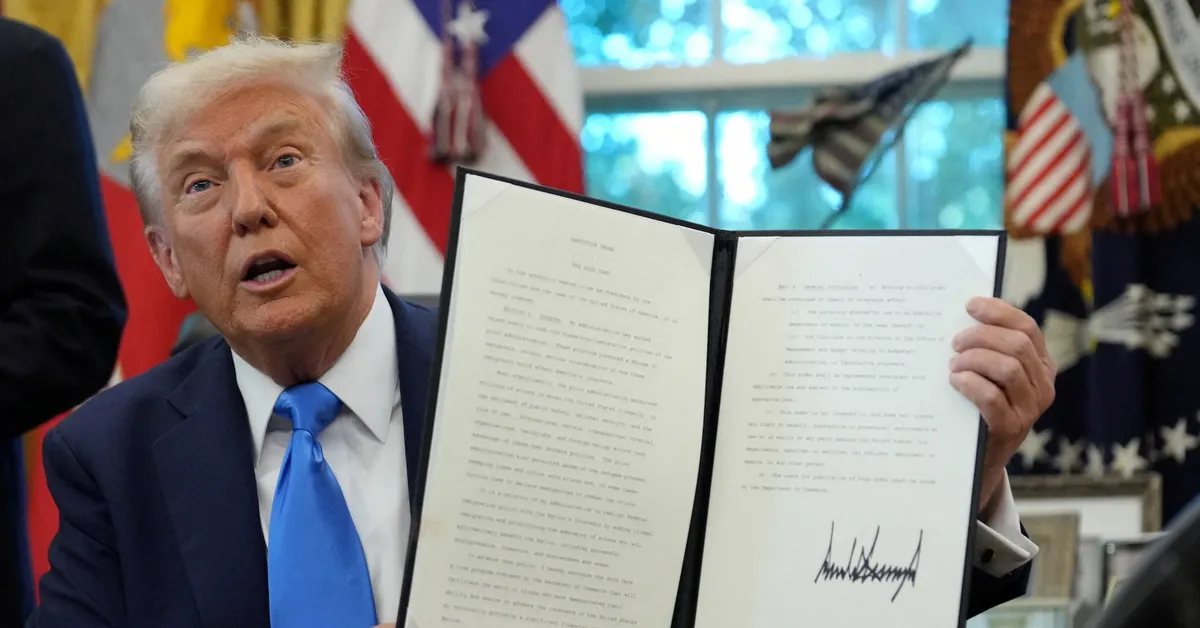
The Indian IT sector, which derives approximately 57% of its total revenue from the U.S. market, has significantly benefited from U.S. work visa programs, particularly in the outsourcing of software and business services. This trend has sparked considerable debate among Americans who claim to have lost jobs to less expensive foreign labor, particularly in countries like India. In fact, according to recent data from the U.S. government, India was the largest beneficiary of H-1B visas in the past year, accounting for an impressive 71% of approved beneficiaries, while China trailed far behind with only 11.7%.
Ganesh Natarajan, the former CEO of IT outsourcing giant Zensar Technologies, has expressed concerns that the 'American Dream' for many aspiring workers is becoming increasingly unattainable. He predicts that companies will begin to limit cross-border travel and will increasingly rely on talent from countries such as India, Mexico, and the Philippines. According to the industry body Nasscom, these changes could have profound implications for America's innovation ecosystem and disrupt business continuity for ongoing projects.
Industry experts suggest that the ongoing global trade and tech war has finally caught up with services exports, as pointed out by Emkay Global Chief Economist Madhavi Arora. This disruption could negatively impact the IT sector's onsite-offshore model, which in turn would pressure profit margins and complicate supply chain dynamics. Observers believe that the recent shifts in U.S. policy will constrain client-facing roles, making it more difficult for IT firms to convert deals and extend timelines for scaling technology projects.
As the situation evolves, experts anticipate that companies will become increasingly selective about which candidates they choose to sponsor for H-1B visas. Vic Goel, managing partner at the U.S. law firm Goel & Anderson, predicts that H-1B filings will be reserved for only the most critical business roles. This shift could drastically limit access to the H-1B program for many skilled foreign professionals, thereby reshaping employer demand for talent.
Legal experts, including Sophie Alcorn, CEO of Alcorn Immigration Law, expect immediate legal challenges to these new restrictions. The Indian IT sector faces additional hurdles, including uncertainty surrounding a proposed 25% tax on outsourcing payments and sluggish revenue growth in its primary U.S. market. Clients are reportedly deferring non-essential tech spending due to inflationary pressures and tariff uncertainties.
Industry analysts believe that the recent changes will accelerate the growth of U.S. firms' Global Capability Centres (GCCs). These centers have evolved from simple low-cost offshore back offices into high-value innovation hubs that support various operations, including finance and research and development. The geographical proximity of talent in Canada, Mexico, and Latin America is expected to facilitate the growth of GCCs, as noted by ISG President and Chief AI Officer Steven Hall.
India is projected to maintain its status as a leader in this area, with expectations that it will host over 2,200 GCCs by 2030, contributing nearly $100 billion to the market and creating up to 2.8 million jobs, according to a report by Nasscom-Zinnov. The founder of Constellation Research, Ray Wang, believes that these developments will lead to more local hiring in the U.S., a greater emphasis on automation and AI, and a decline in outsourcing and job mobility.
The evolving landscape of the Indian IT sector highlights a significant shift in the global services economy. As we navigate this new world order, it is essential to stay informed about the implications of these changes on both the Indian and U.S. job markets.
Reporting by Haripriya Suresh, Sai Ishwarbharath B, Rishika Sadam, Abhirami G, and Urvi Manoj Dugar, with editing by Dhanya Skariachan and Hugh Lawson. Haripriya specializes in covering India's $254 billion IT industry and its growing GCCs, alongside emerging startups. With seven years of experience, she has reported on a range of topics, including politics, civic issues, and the gig economy.